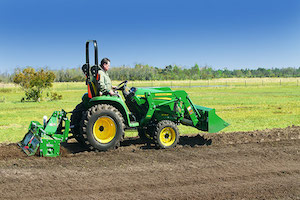Landscapers and gardeners know that using quality topsoil is essential for optimal growth. Manjula Nathan, director of the University of Missouri Extension Soil and Plant Testing Laboratory, is now providing tips for utilizing topsoil to improve growing conditions in both lawns and gardens.
When an existing lawn or garden already has poor soil, the topsoil typically needs to be replaced. This can be done by purchasing bagged topsoil or topsoil that comes in bulk. Bulk topsoil, which is generally purchased by the truckload, consists of native soil harvested from the surface of the ground. The bagged variety can usually be found at garden centers and often comes with fertilizer, lime, and organic matter.
“While plants will grow in a wide range of materials, you should ensure that the topsoil you are buying has suitable physical and chemical properties for your purpose,” Nathan says.
Ideally, topsoil should meet soil acidity standards. Its pH is indicative of acidity or alkalinity, and this can be measured accurately using an electrode. The optimal pH is between 5.5 and 7.5, as most plants thrive within this range. Buyers should also be mindful of soil texture, with the ideal texture being between loam and silt loam.
When it comes to the organic matter in topsoil, the organic content should be at least 3% to ensure that it will provide adequate moisture, aeration, and tilth after application. Nathan also recommends having topsoil professionally tested when purchasing it in large quantities.
More information on soil testing and topsoil can be found by visiting the University of Missouri Extension Soil and Plant Testing Laboratory website at http://muext.us/SoilPlantLab.
